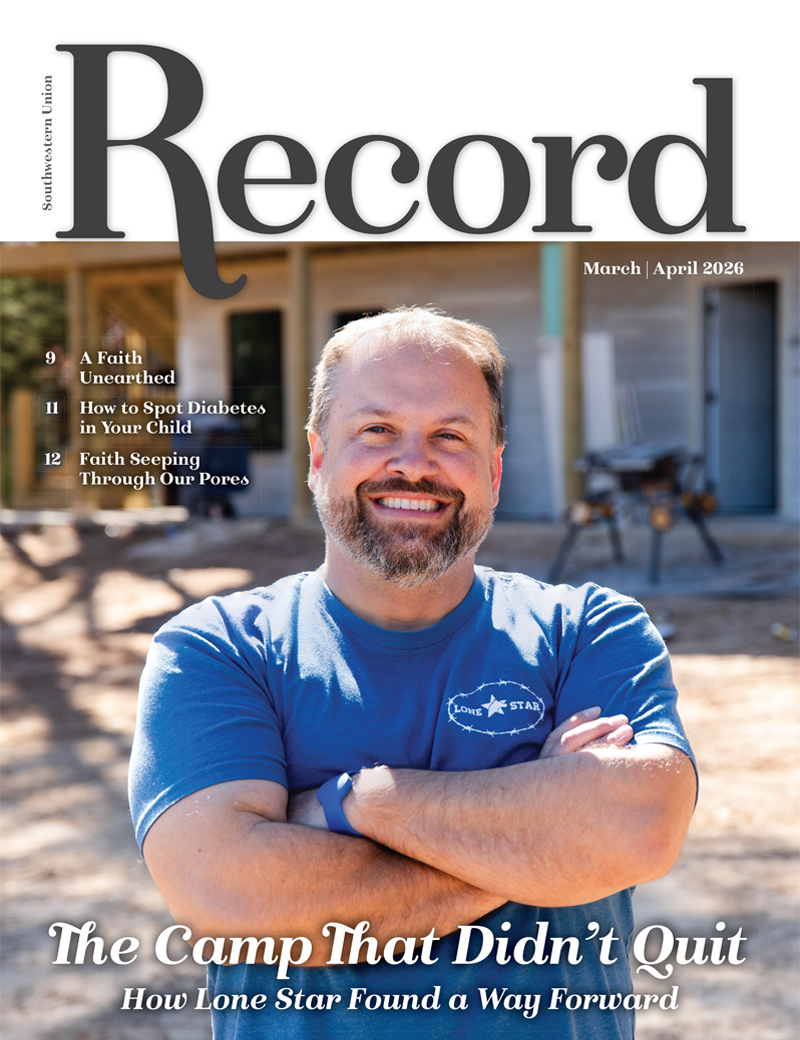Commissioned to Disciple the Next Generation

KEENE, TEX. – Imagine the scene of Jesus, resurrected, waiting to see His disciples. The women saw Him and worshiped Jesus immediately! He instructed them to find His brothers and meet in Galilee. It is there that the Great Commission is given. “Therefore, go and make disciples of all nations, baptizing them in the name of the Father and of the Son and of the Holy Spirit.” Matthew 28:19.
This is the last encounter recorded in the book of Matthew between Jesus and His disciples. The first, about three years earlier, takes place walking beside the Sea of Galilee. Jesus calls out to Peter and Andrew. “Come, follow me,” Jesus said, “and I will send you out to fish for people.” Matthew 4:19. At this point, Peter and Andrew may not have understood what Jesus was asking, yet they left their nets and followed Jesus. From the first invitation to the Great Commission, Jesus transformed a group of diverse people into disciples. Discipleship took place between “Come, follow me” and “Therefore, go.”
The mission statement of Southwestern Adventist University is “inspiring Knowledge, Faith and Service through Christ-centered Education.” Being purposeful about putting Jesus Christ at the center provides an opportunity to model discipleship through education. A discipleship model for education can become a catalyst to fulfill the Great Commission. Why is this essential? Because Christian educators are positioned to fulfill a commission to disciple the next generation.
Jesus came to earth on a mission of salvation, yet how He spent His time reflects what was most important. His ministry was spent not only teaching but also healing and serving. He lived life with His disciples so that they could learn how to disciple others.
In the same way, our schools have a mission of delivering education, but our goal is to make disciples. This goal is reached by following the example of Jesus who was relational and intentional. If we can provide an experience that reflects the love of Jesus, we will make disciples who will launch from our schools prepared to serve a world that needs them.
“Why does your teacher eat with tax collectors and sinners?” On hearing this, Jesus said, “It is not the healthy who need a doctor, but the sick. But go and learn what this means: ‘I desire mercy, not sacrifice.’ For I have not come to call the righteous, but sinners.” Matthew 9:11-13.
Jesus loved being with people. His time on earth was limited, but He purposefully spent it in proximity to others. Jesus was setting the example for His disciples of how to be in community with each other. How can we apply this example to education?
Effective educators build relationships. Jesus taught us that to be an effective teacher, we should look at the whole person and meet their needs. When someone was sick, Jesus healed them. When they were hungry, Jesus fed them. When they were discouraged, Jesus provided encouragement. It was through relationship that His most effective teaching took place. Through relationship Jesus created disciples.
“Jesus answered, “Everyone who drinks this water will be thirsty again, but whoever drinks the water I give them will never thirst. Indeed, the water I give them will become in them a spring of water welling up to eternal life.” John 4:13-14. The interaction that Jesus had with the woman at the well was intentional. He approached her and initiated a conversation that would change her life.
Adventist education should also strive to be intentional. The experience should be not only Christ-centered, but also Christ-forward. He is the living water that leads to eternal life. This is the greatest lesson we can share with students, co-workers and our community.
Christian education provides a catalyst for transformation through relational and intentional discipleship. Education is our mission, but the goal is that students will experience Christ, accept the call to follow Him and be inspired to share the gospel with others. This is true discipleship. It begins with the invitation to “Come, follow me” and leads to the Great Commission to “Therefore, go.” A commission to disciple the next generation through Christ-centered education.
By Ana Patterson, President


